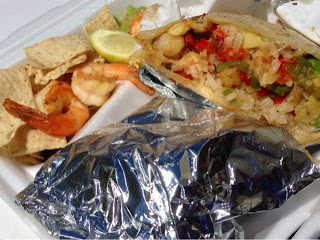As I watched the video I enjoyed seeing how there was a shift in focus from the number on the scale to other more important things in life. The participants in the video (all women by the way) were asked to weigh the most important things in their lives. The types of things that they wanted to weigh varied to wedding rings, diplomas, Dean's List honors, back packs and siblings. It was a nice message to send, especially by such a notable brand as Lean Cuisine. It shows that the mainstream notion of "weight loss" might be changing.
But after a few minutes of thinking, I became much less complimentary of the video. It actually got me pretty riled up and here's why: it's a perfect illustration of the mixed messages we get about weighing ourselves yet still try to lose weight. Is it an improvement compared to past campaigns? Yes but let's be honest, Lean Cuisine is selling and designing food for people who want to eat smaller portions with the ultimate goal: to lose weight! Lean Cuisine is co-opting the non-diet message in the hopes of selling a few extra million frozen dinners.
This co-opting of messages is a common theme these days. "Eat mindfully and tune in to your hunger and fullness! IF you do these things, you'll surely lose weight." Now I'm obviously paraphrasing a little but it's basically what the messages comes down to. Despite a change at the surface, when we look closer at what lies underneath, we are still a society that is focused on changing the number on the scale. Although we might be changing the words we use, we are still focused on changing our body.
C'mon, think about it. Lean Cuisine is telling you not to focus on what you weigh, to think more about what you have accomplished in your life, and it's not the number on the scale. Great message and I agree 100% percent. But this is coming from a company whose name is LEAN friggin Cuisine! Every box of frozen-food says it right there, in front of our face: "LEAN!" The package does not say, Every Body is Beautiful and Deserves Delicious, Frozen Cuisine. No, it says LEAN Cuisine. You might say, well it's just the original name of the company and maybe they are talking about the food being lean. To that I say, everything is in the name. Sure maybe they are referring to lean food but the underlying message is also having a lean body! Brand names are important. Think about Skinny Cow. What is that product name saying about us?
So, let's give up on the name thing and then focus on the food. Sure, Lean Cuisine makes some great options. Their food philosophy has changed recently and they are meeting the need of the consumer by offering different choices like high protein, gluten-free and organic meals. They've removed almost all mention of "low calorie" from their website but if you look at the nutrition information you'll see nearly all dishes (except for a few) are less than 300 calories per meal. Why would someone intentionally eat a 300 calorie meal unless it was to lose weight? If I eat one Lean Cuisine meal, 3 times a day, that would be around 900 calories a day an not nearly enough to satisfy any normal level of hunger. Restriction like this is what leads to binge-related eating. What if I just have them for lunch or dinner (which is totally reasonable)? Again, I would argue that 300 calories might not be enough energy to sustain someone from mid-day to bedtime which can lead to this scenario. Eat lunch --> it satisfies my hunger for an hour or maybe two --> hunger levels increase --> I don't have permission to eat because I just ate 1-2 hours ago so I wait until the next meal --> hunger levels increase --> I overeat my snack or dinner because hunger levels became so strong. In my experience, the low calorie frozen meals just don't sustain hunger levels long enough for most people.




















